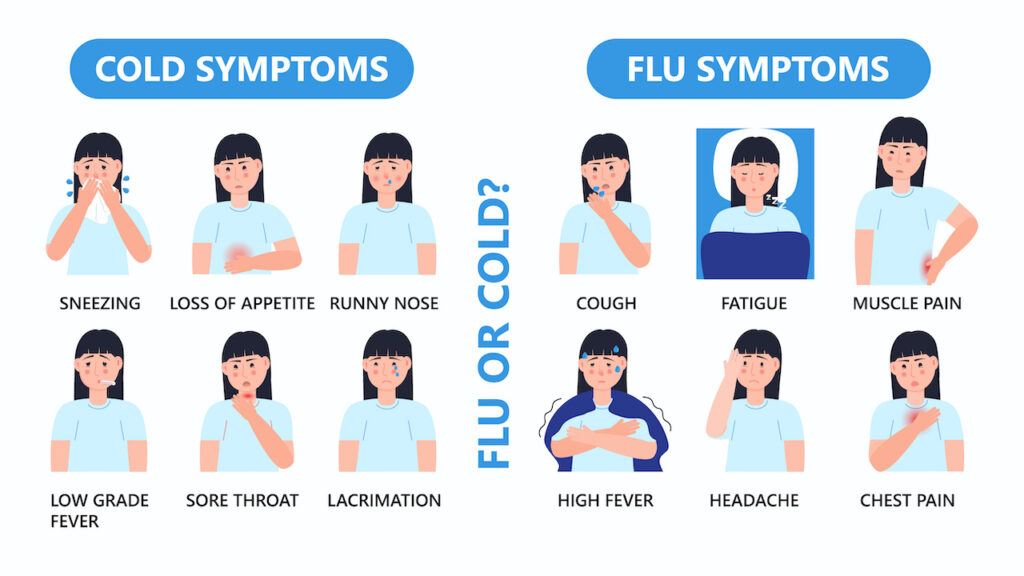Things Everyone Should Know About a New and Not So New Cough

What is cough?
Understanding coughs, both new and persistent, is important for taking care of your health. Coughs are common and one of the most reported reasons for visits to the doctor’s office. Some people can be more likely to get coughs than others, including smokers, people who vape, children, or have allergies or chronic illnesses. Types of cough are related to how long they last, such as acute or chronic cough.
New Coughs
A new cough can have many different causes and is one that usually resolves in a matter of a few days to a few weeks. Many common etiologies include:
- Common cold
- Flu
- Pneumonia
- Allergies
- Asthma
- COVID-19
- Acute bronchitis
- Sinusitis
There will often be other symptoms such as sore throat, fever, or congestion, depending on the underlying cause. Often times rest, hydration, and OTC cough medicine can help relieve symptoms. However, if the cough persists for over 3 weeks, then medical advice is recommended to find the underlying cause.
Chronic Cough
A cough that lingers for more than 3-8 weeks warrants seeking a medical professional for advice. Although a chronic cough is usually not serious, warning symptoms call for prompt medical care. The symptoms include shortness of breath, wheezing, chest pain, weight loss, coughing up blood, heavy sputum production, and weakness.
Common causes of a persistent cough include:
- Postnasal drip
- Asthma
- GERD
- Chronic bronchitis
- Use of ACE inhibitors

Less common causes include:
- Airborne environmental irritants
- Aspiration during swallowing
- Heart failure
- Lung infections
- Pertussis (whooping cough)
- Lung cancer
- Other lung diseases
- Psychological disorders
Treatment for a chronic cough depends on the underlying cause, and may involve medications, lifestyle changes, or other therapy prescribed by your doctor. Understanding the duration, accompanying symptoms, and potential causes of a cough helps in timely and appropriate medical intervention.
Summary:
- Understanding coughs is vital for healthcare, as they are a common reason for doctor visits.
- Factors influencing susceptibility include smokers, vapers, children, and those with allergies or chronic illnesses.
- Coughs are classified by duration into acute or chronic.
- Various causes include common cold, flu, pneumonia, allergies, asthma, COVID-19, acute bronchitis, and sinusitis.
- Relief for new coughs involves rest, hydration, and OTC cough medicine; medical advice is needed if persistent for over 3 weeks.
- Seek medical advice for coughs lasting 3-8 weeks, especially if accompanied by shortness of breath, chest pain, weight loss, or coughing up blood.
- Common causes of chronic cough include postnasal drip, asthma, GERD, chronic bronchitis, ACE inhibitors; less common causes include environmental irritants, aspiration, heart failure, lung infections, pertussis, lung cancer, other lung diseases, and psychological disorders.

This article reviewed by Dr. Jim Liu, MD and Ms. Deb Dooley, APRN.
There’s nothing more important than our good health – that’s our principal capital asset.
#medical #telehealth #umedoc










